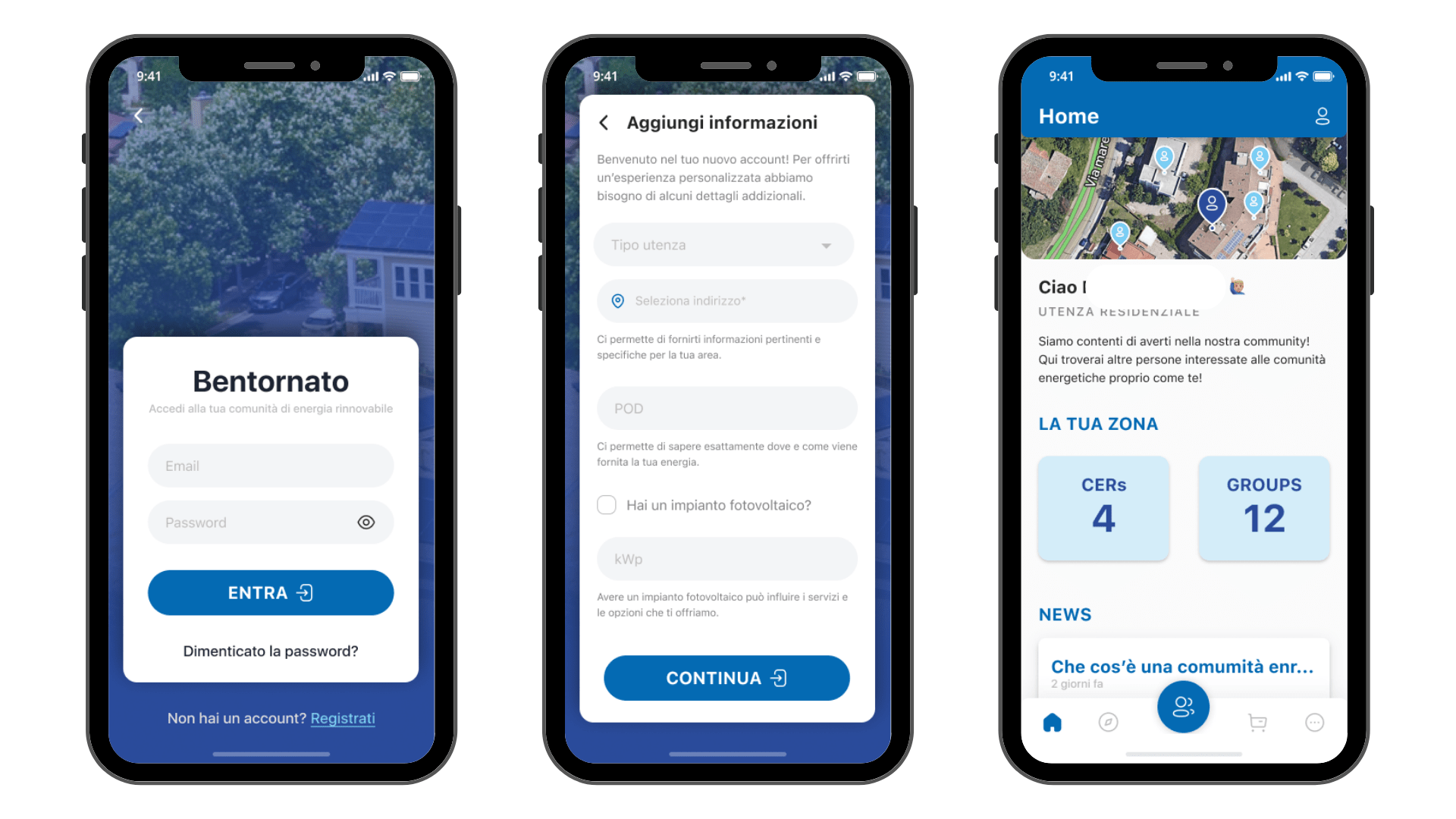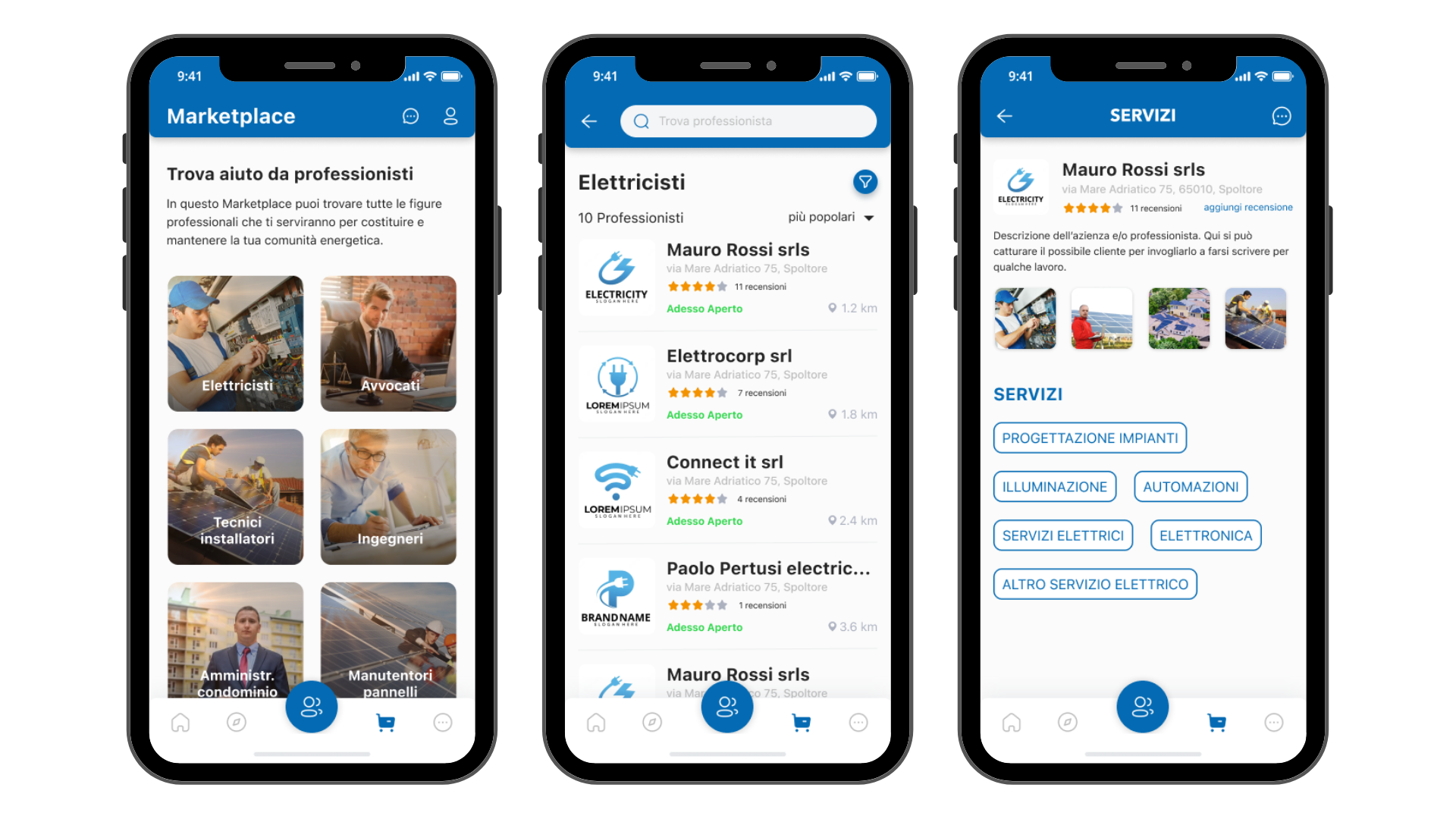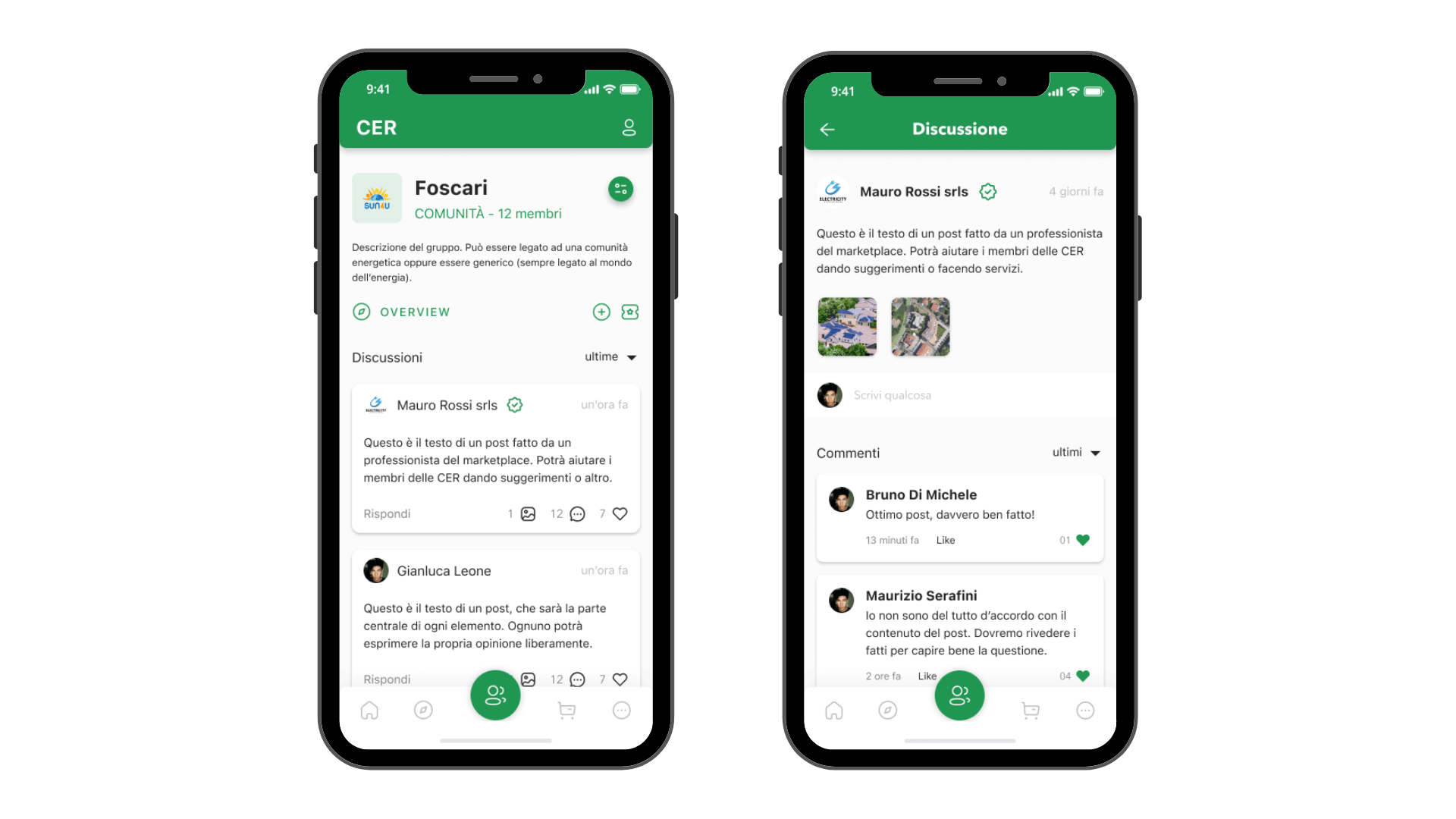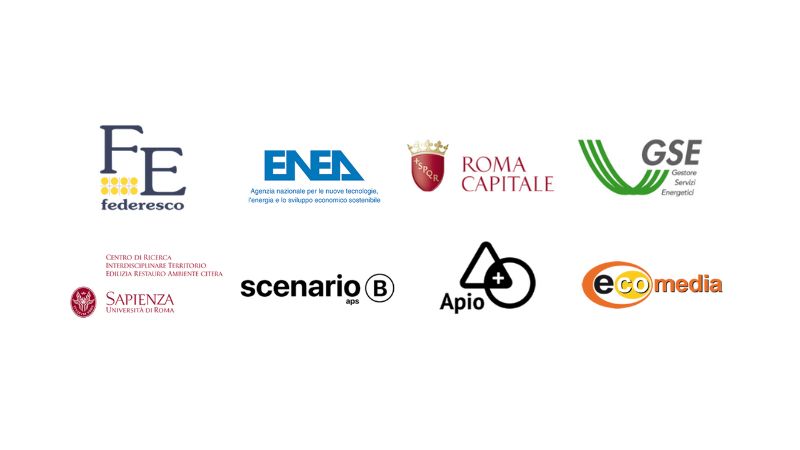SUN4U: A Platform for Inclusivity in Energy Communities
Use Case
Energy flexibility
The integration of Renewable Energy Communities (RECs) marks a significant advance in the energy landscape, receiving unanimous support from institutions, companies, and citizens. This revolutionary model, inherently dependent on cutting-edge technologies, aims to maximize efficiency and ensure optimal control. RECs embody an inclusive approach; however, it is vital to ensure universal access to their services and benefits.
Through the adoption of various state-of-the-art frameworks and an agile methodology provided by the Apio ecosystem, we have been able to create an avant-garde platform in a short time. This tool supports FEDERESCO in addressing the challenge launched by the ICLEI Action Fund 2.0, aiming at the development of data-driven projects to promote sustainability and energy transition in the urban context.
The Project
The Sun4U project emerges from the collaboration between the Department of Social Policies and Health of Rome Capital, Federesco, ENEA, the CITERA research center of the Sapienza University of Rome, and Federconsumatori Lazio. It represents the evolution of the European initiative "Horizon 2020 Sun4ALL", to facilitate the establishment of Renewable Energy Communities (RECs) in Rome through the use of a sophisticated digital platform that integrates web and mobile technologies.
This platform, due to its accessibility and versatility, acts as a catalyst for the inclusion and expansion of RECs, allowing even small collectives to establish an energy community. The project stands out for its dedication to offering an open-source and free technological solution, incorporating webGIS analysis, social features for communication between participants, and a marketplace, essential elements for optimizing the formation of RECs and strengthening trust among members.
A holistic approach, which blends technological advancements with a strong social and market component, aims to remove barriers to the creation of RECs, thus facilitating the transition towards a sustainable and participatory energy system.
Sun4U positions itself as an exemplary demonstration of how technological innovation, combined with an inclusive and collaborative approach, can accelerate the urban energy transition.
The partnership with Apio for the development of App/WebApp solutions emphasizes the importance of a reliable and intuitive digital infrastructure, essential for the engagement of citizens and the effective realization of community energy projects.

Sustainability goals achieved
Sustainable goals achieved with the project
Architecture
The technological architecture of the Sun4U project represents a paradigm of innovation and scalability, designed to address the complex challenges of the urban energy transition. This platform stands out for the synergistic integration of advanced technological components, open-source frameworks, and agile methodologies, configured to support the dynamic evolution of Renewable Energy Communities (RECs).
The Sun4U platform is built around a microservices architecture, an approach that allows the application to be divided into autonomous services. This distributed approach ensures considerable flexibility and the possibility to expand or modify specific functionalities independently without affecting and without interrupting the overall ecosystem, thus ensuring unprecedented operational resilience and flexibility.
The technology on which the microservices are based allows easy integration with various cloud infrastructures, ensuring that the platform can be effectively managed in various cloud environments without being tied to a specific provider. This approach ensures that each system component can operate optimally, regardless of the cloud platform used, maintaining high standards of efficiency and reliability.
Integration and customization
Through the innovative architecture implemented, Sun4U achieves advanced automation and extremely efficient resource management, allowing dynamic scalability in response to demand fluctuations. This feature is essential for effectively managing traffic peaks and load variables, which are common in large-scale digital platforms. The architecture is designed for seamless integration with a wide range of APIs, including advanced payment systems, energy management platforms, and complex data analysis tools, thereby promoting advanced customization and the progressive development of the proposed services.
The platform and mobile application offer key functionalities that enable:
- Effective management of the initial phase of forming an Energy Community, ensuring a solid foundation for its development.
- An intuitive and simplified user registration process, facilitating access to the platform's functionalities.
- Advanced simulation features, allow users to assess their potential role and contribution within the energy community.
- The ability to create discussion groups, stimulating collaboration and the exchange of ideas among community members.
- The enablement of third-party roles and figures is essential for providing specialized assistance to users.
- A system for formalizing the constitution of the energy community, including the facilitation of financial and legal services necessary for its establishment and operation.
These features, integrated into the Sun4U platform, reflect a commitment to creating a more accessible, collaborative, and sustainable energy ecosystem, facilitating the transition towards renewable and participatory energy models.

Security and reliability
A crucial aspect of Sun4U's technological architecture is its commitment to data security and integrity. By implementing cutting-edge security protocols and cybersecurity best practices, such as end-to-end encryption and multi-factor authentication, the platform ensures the protection of users' sensitive data and transactions. Moreover, continuous monitoring of performance and security is conducted, using advanced tools for anomaly detection and intrusion prevention.
Data analysis and artificial intelligence
A distinctive element of the Sun4U architecture is the integration of advanced data analysis capabilities and artificial intelligence algorithms. This allows for the processing of large volumes of data related to energy consumption, renewable energy production, and weather forecasts, to optimize the management and distribution of energy within RECs. The use of geospatial analysis platforms and webGIS supports the visualization and optimization of REC configurations, improving strategic and operational decision-making.
User interface and accessibility
The architecture includes an intuitive and accessible user interface, designed to ensure smooth navigation and an engaging user experience on both mobile and desktop devices. The adoption of responsive and accessible design principles ensures that the platform is usable by a wide range of users, including those with disabilities. The interaction between users and the platform is facilitated by a UX/UI that promotes engagement, collaboration, and active participation in the management of RECs.

The technological architecture of Sun4U stands at the forefront of the solutions for the energy transition, offering a robust, secure, and scalable platform. This architecture not only meets current needs but is also designed to adapt to the future evolutions of the energy sector, demonstrating a commitment to continuous innovation and sustainable development. With Sun4U, energy communities can rely on a solid technological foundation to navigate the transition toward a renewable and inclusive energy future.







